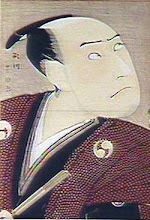I had my first run in with a social worker when I was about sixteen. I was in the hospital with some kind of hemorrhage—most likely my knee or hip, but who knows. One afternoon I was sitting in my bed reading, just minding my own business when a somewhat older (late twenties or early thirties) woman came up to my bed and introduced herself. At first I thought she was from the Hospital School because she wasn't wearing any kind of uniform or doctor's lab coat, but it was the wrong time of day for them (and I knew all the teachers) which left the Chaplain's office. I was not in the mood for another discussion about how some god, or his son, could help me through this "difficult time," or perhaps even end them forever. (If you took their reasoning to its logical end this god, or his son, was responsible for the "difficult time" in the first place, and I was just not quite ready or willing to thank him for having bestowed this special blessing on me. But I digress.)
She sat down in my visitor's chair, told me her name and said she was one of the hospital's social workers. I began to relax a little. At least I wasn't going to be having any theological debates. Also, since I didn't know what a social worker did, there was a slim chance she might be there to arrange my attendance at hospital parties and picnics where one might meet young ladies whose purpose in life was to ease one's suffering during this "difficult time" and help fill the lonely hours of one's recovery. That daydream was delicately shattered when she said she would like to talk to me a bit about my condition. The way she said the word 'condition' placed it firmly in italics or quotation marks, and seemed to indicate it was best not mentioned in polite company.
I said, "Okay." I had learned long ago to be careful when talking to civilians when I was in the hospital. Until you knew what their motives were it was best to give careful, non-committal answers. Otherwise you might find yourself being whisked off to a service for a religion you had never heard of; or attending a concert of traditional mariachi tunes played on bagpipes on the 12th floor sun porch; or sitting on a stretcher on the stage of an auditorium with 300 students staring intently at you while they took copious notes about how you came to be there. You never really got out of the last one, but at least you had some warning about what was coming and could make sure your fly was securely buttoned.
Despite the inability of my blood to clot, I was a reasonably healthy sixteen-year-old young man with a set of reasonably healthy hormones, and being visited by an attractive, somewhat older young lady was not an entirely disagreeable event. I propped myself up on one elbow and tried to look as suave as was possible while wearing hospital issue pajamas and having one leg packed in ice.
"It says in your chart that you are a hemophiliac, and I was hoping to visit with you and make sure you understood what that meant, and to let you and your parents know that I am here to help you." She crossed her legs, and tucked her skirt tightly around them. Some of my hopes of a pleasant afternoon began fading. "Now then, you do know what hemophilia is, don't you?"
"Yes. My blood is missing a protein, and because of that it doesn't clot."
"Yes, well now, when exactly did you learn you are a hemophiliac?"
"I've known it all of my life. My parents found out when I was three days old when the doctor circumcised me."
She started flipping back and forth in my records, to find the documentation of this event. "I don't see anything about that." Her tone of voice indicated she half believed she had caught me in a lie.
"I was born in Idaho, so it's not in your records."
"Okay, so you know it's an inherited disease, and that if you have children you'll be spreading the disease."
"Yeah. My mother's father has hemophilia, two of my cousins have it and my little brother has it. I know how the genetics work." I was starting to get annoyed. Ever since I had even begun to perhaps slightly appear to be starting puberty people, always well meaning and for my own good of course, had been giving me variations on The Eugenics Sermon. They just knew that after I thought about it I would get sterilized, join a monastery, never marry or have children because I wouldn't want to continue this tragic curse would I? Much to my relief, she changed the focus of her questions.
"What grade are you in this year?"
"Ninth."
"What school are you going to?"
"Tecumseh High School."
"Hmmm. Public high school." She flipped back and forth in my chart for a while, and then continued, "Do you get along well there? By that I mean are you able to keep up in your classes and take part in social activities; or do you find that your condition," there were those verbal italics again, "makes it hard to take part in things or make friends?"
My relief dissolved faster than you could say Rolaids. "I get along okay. I can't take gym, but that's okay with me. I've never been real keen on taking showers with other guys."
She gave me the kind of tight, little smile that strict, no nonsense types always give when they think an attempt at humor or wit has been made. She was there to talk to me about serious stuff like how my condition was supposed to make my life miserable, and she wasn't going to tolerate any attempts to make things a bit more pleasant.
If she had asked me that a few years later, and hadn't been such a tight ass, I might have told her that sometimes it was hard to get a date to a big dance like Homecoming because the girls, quite understandably, didn't want to buy a dress, talk their parents into letting them stay out later than usual, and look forward to a fun evening and then have my mother call them the day before the dance and say she was sorry, but I was in the hospital and wouldn't be able to take her after all; and there were a couple of fathers who wouldn't let their daughters date a cripple; but that was in the future and those were problems and bigots I hadn't run into yet.
"Well," she said in her best this-is-no-laughing-matter voice, "doesn't it sometimes make you angry that you can't do all the things normal kids do?"
"Not really."
"Really? I think I would be very angry if I couldn't play sports, and was in the hospital all the time."
I didn't know what to say to her, but it was clear she wasn't going to go away until I said something. "Getting angry wouldn't help anything. All that would do is make people stay away from me. And who would I get mad at? My Mom for having a defective gene? Grandpa for giving it to her? The great-grandmother that gave it to him? God for creating it? You can't get mad at nothing. It wouldn't make anything better, and you'd just end up feeling worse."
"But it's so unfair."
"Look around you." I was getting pissed, and not in the British sense. "It wasn't fair that Bobby down at the end got his face blown off when his dad squirted lighter fluid on the grill. They took Elaine out to a hall room today because she's probably going to die soon. That's not real fair. It isn't fair that anyone is in here, but there isn't any such thing as fair. Things happen and the universe doesn't give a damn if they're good or bad, and if you spend all your time crying because something isn't fair you'll never do anything to make them better."
A couple of days later, a doctor came by for a chat. He was from the Psychiatric Department, and he had come by because 'they' were worried that I was having trouble coming to terms with being a hemophiliac. We talked about Boy Scouts, girls, being a drummer, music in general (he liked jazz and I liked folk), swimming and school. After a while he got up to go, and asked casually if there was anything he could do for me. I said, "Yeah. You could keep social workers away from me." He laughed and said he understood.
06 February 2009
Subscribe to:
Post Comments (Atom)










No comments:
Post a Comment